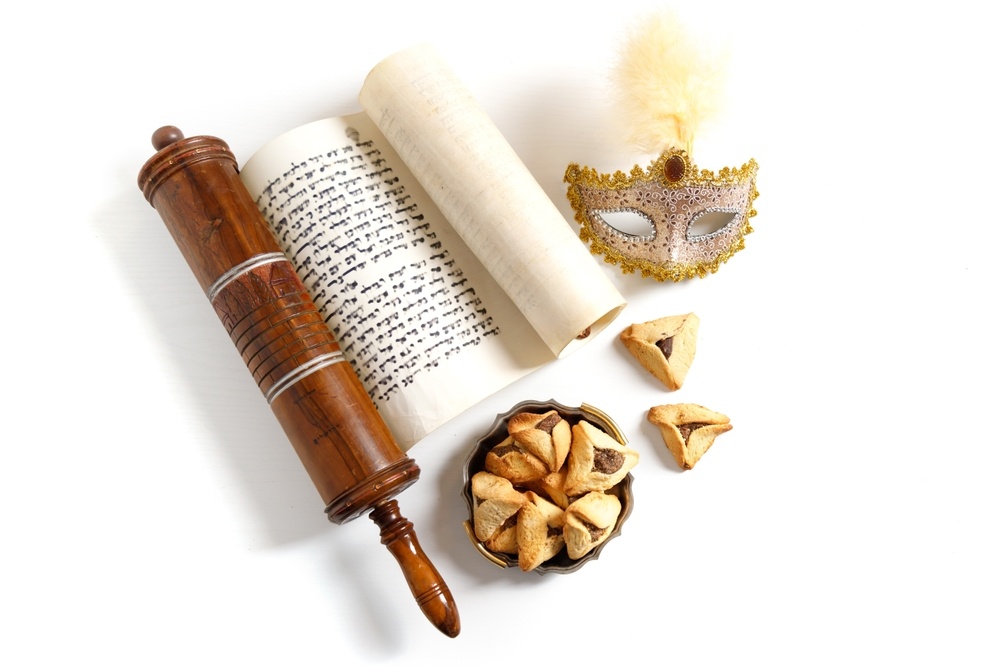
One of the (many) strange features of Purim is the fact that we do not recite Hallel. “The Prophets among them established [Hallel] for the Jewish people, that they should recite it every time for every trouble may it not come upon them and when they are redeemed, they recite it over their redemption” (Pesachim 117a). Surely Purim fits this description, leading the Talmud to wonder, “If from slavery to freedom (Pesach), we recite songs, from death to life (Purim), how much more so”. To this the Gemara gives three answers, the most famous being that one does not say Hallel on a miracle that occurred outside the Land of Israel.
This answer seems is hard to understand. Is a Jewish life outside Israel any less valuable than one inside Israel? Hallel is to be sung in response to danger averted or in gratitude of wonderous events experienced by the Jewish people. Why should such be of any less significance just because it happens outside the land of Israel?
At least in the context of Purim this answer has great resonance – especially and sadly, today. This is especially so if one takes the position that the story of Megillah took place after the Jews had returned from the Babylonian exile and had already built the Second Temple[1]. Yet the vast majority of the Jewish people remained in the Diaspora. Many of those who did return were those with few roots in their new home; mamzerim, converts, those born out of wedlock, including those who knew neither their father nor mother (Kiddushin 69a).
Taking Yirmiyahu’s admonition to, “Build houses and live in them, plant gardens and eat their fruit… seek the welfare of the city to which I have exiled you and pray to the Lord in its behalf; for in its prosperity you shall prosper” (Yirmiyahu 29:5,7)) to heart, they took little heed of Yirmiyahu’s follow up: “When Babylon’s seventy years are over, I will take note of you, and I will fulfill to you My promise of favour—to bring you back to this place”. Like so many today, the majority preferred to stay in the Diaspora. This undoubtedly created much tension with those who were living in Israel. The members of the Anshei Knesset Hagedoalh worked tirelessly to re-establish Jewish life in Israel, yet so many stayed behind.
There was great resistance to establishing Purim as a holiday (Megillah 7a). Mordechai may have been popular with the masses – the last verse of the Megillah teaches that he was “popular with the multitude of his brethren” – but the Sages were somewhat less impressed. “This teaches that part of the Sanhedrin separated from him” (Megillah 16b). After all, how could it be that Jews who neglected the call to return to Zion would be the ones to save Jewry. How could it be that those with non-Jewish names – of deities no less, (the equivalent today might be Christopher and Mary) – who intermarry could be the messengers of salvation. So oblivious was Esther to Jewish tradition that she apparently was unaware that Haman’s decree was sent out the day before Pesach. She may not have eaten chametz but she ate no matza either[2] choosing the least appropriate day of the year to fast[3].
And yet Purim is in many ways the greatest of all holidays. Yom Kippurim (as the holiday is actually called in the Torah) is a Yom k’Purim, a day like Purim, implying Purim is of even greater significance than Yom Kippur itself.
While on Yom Kippur G-d is front and centre – we pretty much spend the entire day beseeching Him - on Purim G-d is hidden, not mentioned even once in the Megillah. Even those distant from G-d can bring salvation to the Jewish people.
Purim is the holiday of Jewish unity. Haman came up with his plan to exterminate the Jewish people because he saw that we were a divided people, “scattered and dispersed among the other peoples in all the provinces of your realm, vdateihem, whose laws are different” (Esther 3:8). As the Malbim notes, unlike other religions, the Jewish people were divided into many different religious camps such that it appeared that the Jews practiced “many religions”.
Purim is time we demonstrate that we are one people. We send gifts to the poor, and gifts to one another. We party together and don’t let silly things like clothes define who we are. Even issues of gender need not divide us - the RaMaH quotes the custom of cross dressing on Purim (Orach Chaim 696:8). We wear masks to indicate it is not the externals that matter but what is inside that counts. It is for this reason that the pious - those whose are tocho k'boro, whose inside is like their outside - who are true to themselves, should drink to excess on Purim.
The practices of Purim may be limited to one day a year. But the message of Jewish unity is one we must practice all year. Religious or not, living in the Diaspora or Israel, whether Askenazni or Sefaradi, Orthodox or Reform, right wing, left wing and everything in between, we are one people – something our enemies know very well – and we dare not forget that. The modern-day Haman’s are salivating as they witness a Jewish people divided as never before in my lifetime (and perhaps since the time of the destruction of the Temple). That the words “civil war” are even spoken about is beyond frightening.
V’nahafochu –let us hope that those who have the power to do so, see the “light” so that we may have “joy, happiness and honour.” May the greeting of Purim Sameach be more than a wish. We can choose the Achashverosh’s of this world as our king or choose to serve G-d, the King of kings. But as Moshe tells us in his very last message to the people about to enter the land, G-d can only be King if the Jewish people are united. “Then [G-d] became King in Jeshurun, when the heads of the people assembled, the tribes of Israel together” (Devarim 33:5). May the miracle of Purim be not only bayamim hahem, in those days, but bazman hazeh, in our times. Our future depends on it.
[1] Even if one assumes, as the rabbinic tradition, that Purim took place during the 70-year exile, such matters little as per the footnote below.
[2] Not surprisingly, our Sages had a very different reading of the Megillah. Yet the Megillah like all other books of Tanach – but much more so – lends itself and demands we read it in multiple ways, in ways relevant for the reader. “In every generation one must see oneselve as if one had been redeemed from Egypt” demands the story of the Exodus, and all others in Tanach, must be made relevant for us.
Our Sages had little interest in the academic study of history but great interest in learning the lessons of history. Something need not to have happened to be true (something worthy of a much larger and nuanced discussion). The fact that the Megillah lacks historical context and serves as a template for Jewish life in exile demands that this book more than any other be read in the context of current events.
[3] And if one assumes the Jewish people in Persia were observant, perhaps the tension was even worse. Should those committed to tradition not know better?



